6 breastfeeding positions to try
You can breastfeed in several different positions. It’s important to pick one that’s comfortable so the feeding goes well. Here are a few basic tips and position ideas to breastfeed your baby.
2 basic tips for all breastfeeding positions
Get comfortable
When nursing, it’s important to get into a comfortable position. Use a pillow, cushion or even blankets for support. Finding a comfortable position will keep you from getting neck or back pain. The more comfortable you are, the more pleasant breastfeeding will be.
Place the baby properly
Regardless of which position you choose, make sure your baby’s body is facing your breast. Baby’s shoulder, ear and hip should be in a straight line. And your baby’s body should be right up against you, so the baby feels safe.
If you need to, you can support the baby on a cushion to be at the level of your breast.
Examples of breastfeeding positions
There are various positions for breastfeeding. Choose the one or ones that work best for you.
Laid-back or reclined position
In the laid-back position, you’re leaning slightly backwards, just enough to keep baby from slipping. The baby is supported on your stomach. This position allows baby to use his or her reflexes to find the breast.
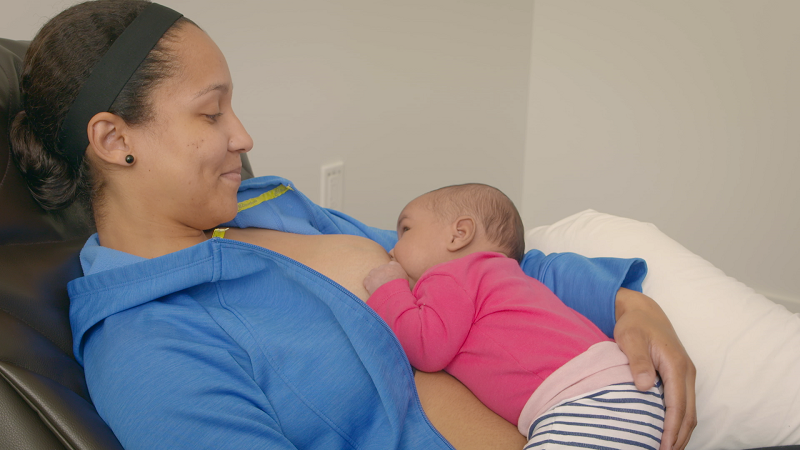
The cross-cradle hold
In the cross-cradle hold, the baby rests on the forearm opposite the breast you’re using to nurse. For example, if you’re feeding the baby from your right breast, you’ll support baby with your left arm. Hold baby’s upper back with your left hand.
This position is great for newborns and preemies. It lets you support the baby solidly and see how he or she is latching on. It’s also useful for babies having trouble latching on.
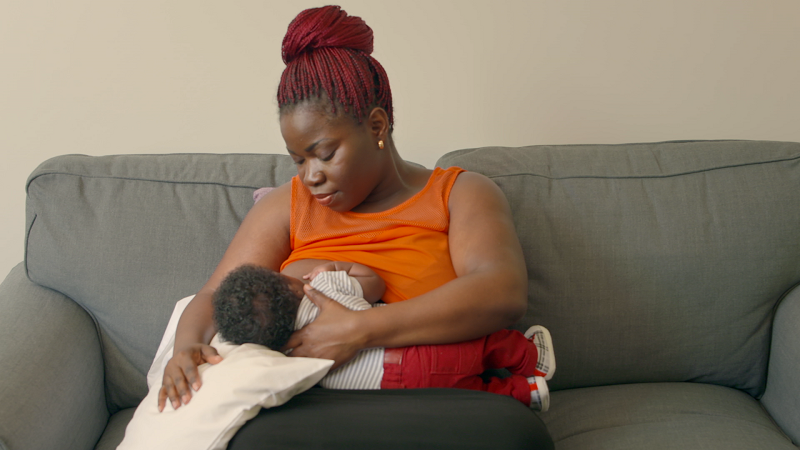
The cradle hold
In the cradle hold position, the baby is resting on your forearm, on the same side as the breast you’re using to nurse. For example, if you’re feeding the baby from your right breast, the baby’s head will rest on your right forearm and the baby’s feet will be on your left.
Don’t try to carry the baby. Your arms are there to provide comfort, not to support the baby’s weight. For added comfort, you can rest your arms on a cushion, blanket or armrest.
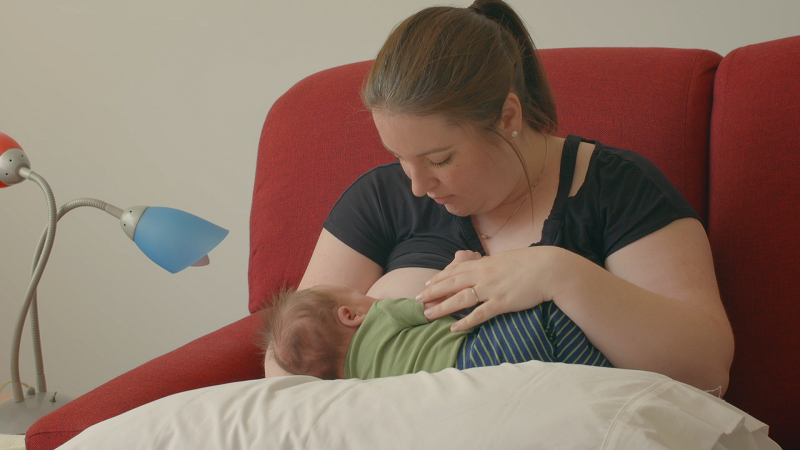
Rugby ball (or underarm) hold
In this position, the baby is tucked alongside your body, under your arm. The baby’s upper back is supported by your hand.
You may like this position if you had a c-section, twins or if you have ample breasts.
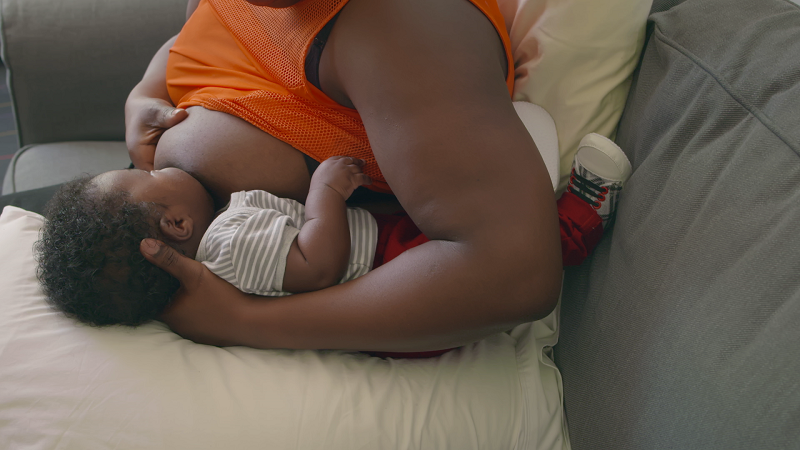
Side-lying position
In the side-lying position, you and the baby are lying down, one next to the other, belly-to-belly. Your arm keeps the baby in position.
Caution: Your baby must be far from the edge of the bed to prevent falls. A rolled-up towel or blanket can be placed against baby’s back to keep him or her in position.
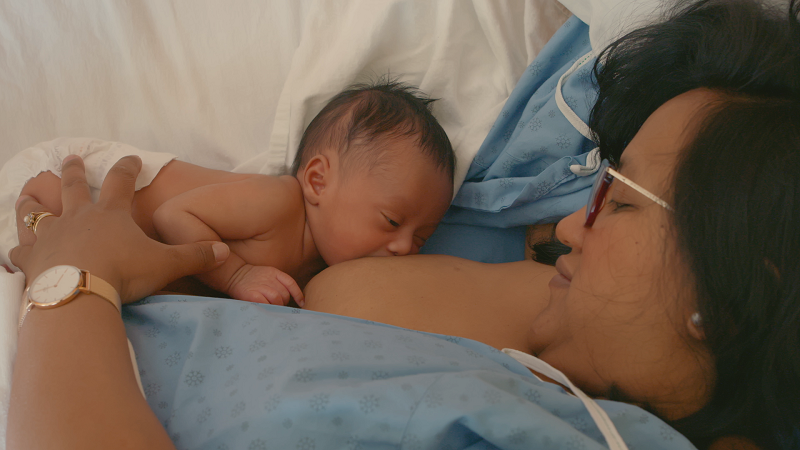
Upright position (or koala hold)
In this position, the baby is straddling your thigh. Your hand supports the baby’s upper back.
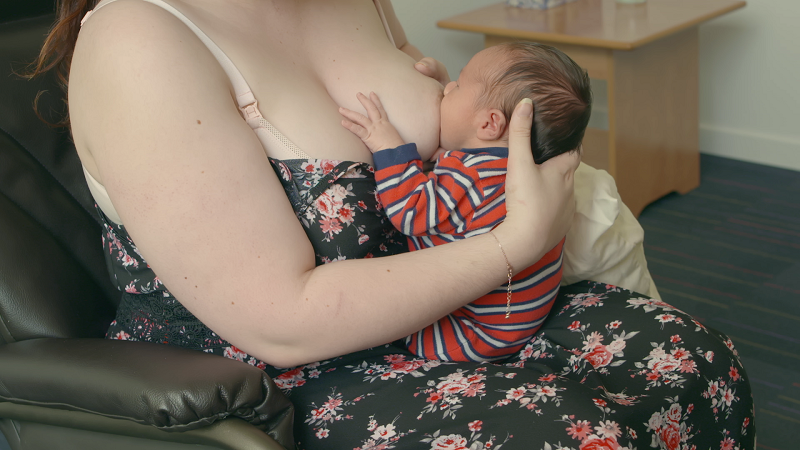
As your baby grows, try different positions to find what works best. The more comfortable you are, the more pleasant breastfeeding will be for you and baby. If you’re having trouble, ask for help from a nurse, your doctor, your midwife or a breastfeeding consultant.
Writing : Julie Strecko, nutritionist, Dt.P., M.Sc.
